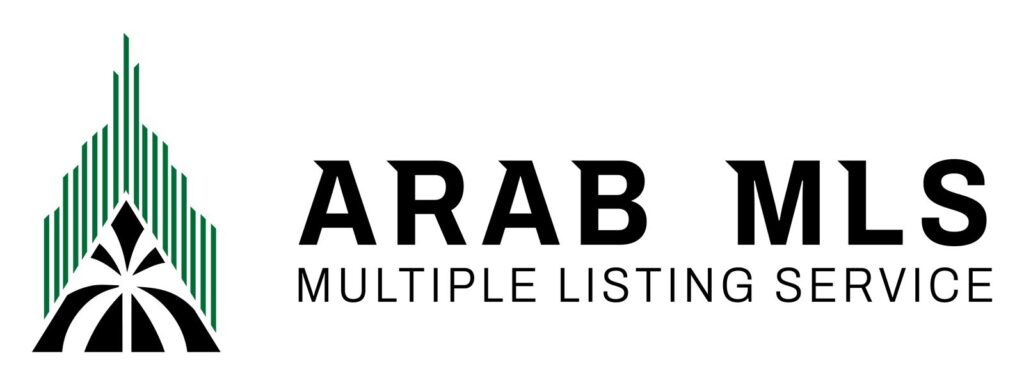The home-buying process is often described as exciting yet complex, a journey that involves countless decisions, detailed research, and frequent communication with real estate professionals. As the housing market becomes increasingly competitive and technologically advanced, buyers are seeking tools that provide clarity, convenience, and control. One of the most transformative advancements in this regard is the emergence of personal Multiple Listing Service (MLS) dashboards designed specifically for buyers. These customized platforms deliver a tailored, centralized interface where prospective homeowners can efficiently manage their property searches, track progress, and collaborate with agents.
Understanding the Value of the MLS in Real Estate
The Multiple Listing Service has long served as the backbone of real estate, providing a comprehensive and organized database of property listings accessible to agents and buyers alike. Traditionally, buyers accessed the MLS through agents or public real estate websites, navigating vast arrays of listings without much personalization or interactive functionality. Although these sources provide valuable information, the conventional process can feel overwhelming due to the volume of options, fluctuating market conditions, and the multitude of personal preferences involved.
Personal MLS dashboards represent an evolution from this static model, privileging buyer empowerment and streamlined management. By harnessing the power of technology, they transform raw property data into actionable insights tailored to each search.

What Are Personal MLS Dashboards?
A personal MLS dashboard is a secure, user-friendly interface that aggregates relevant real estate data based on a buyer’s specific criteria. Unlike generalized portals, these dashboards enable users to filter properties, save favorites, monitor market trends, and receive real-time updates all in one digital space. Such dashboards are typically accessed via web or mobile applications and often feature interactive elements like mapping tools, comparison grids, and personalized notifications.
Buyers gain the ability to customize searches by key factors surrounding price, location, property type, amenities, and even more nuanced details such as school district ratings or proximity to transit. This level of customization reduces confusion and focuses the home search on properties that genuinely meet the buyer’s needs and aspirations.
The Advantages for Buyers
Personal MLS dashboards offer several benefits that enhance the home-buying journey. First and foremost, they foster greater organization. From bookmarking preferred homes to maintaining lists of viewed properties, buyers keep all relevant information in a single, accessible place. This organization is especially valuable as the search process can extend over months, involving multiple showings and negotiations.
Beyond organization, these dashboards introduce efficiency and time savings. Instead of repeatedly searching disparate websites or communicating long email threads with agents, buyers receive curated updates as soon as new listings align with their criteria. Automated alerts ensure they never miss out on competitive opportunities, which is crucial in fast-moving markets where timing is vital.
Personal MLS dashboards also encourage informed decision-making. Many platforms integrate tools that provide detailed property histories, neighborhood statistics, and comparable sales data. This transparency minimizes guesswork and empowers buyers to analyze value and identify potential investment risks.
Enhancing Collaboration with Real Estate Agents
A truly effective personal MLS dashboard does not merely function as a standalone search tool; it actively supports collaboration between buyers and their real estate agents. This integration is central to its appeal because real estate transactions inherently require clear communication, trust, and negotiation.
Dashboards often facilitate two-way communication by allowing buyers to share notes and questions about specific listings directly with their agents. Agents can respond promptly, update the status of properties, and schedule showings without the delays inherent in traditional back-and-forth correspondence.
Moreover, real estate professionals gain insights into their clients’ preferences and behaviors by monitoring the properties viewed, time spent on listings, and feedback left by buyers within the dashboard. This data-driven approach allows agents to refine search parameters, prioritize properties effectively, and provide more personalized service.
Personalization and User Experience
From a technical perspective, the design of personal MLS dashboards plays a critical role in user engagement and satisfaction. The most successful platforms prioritize ease of use, intuitive navigation, and visually appealing layouts. Buyers typically appreciate features such as interactive maps with neighborhood overlays, side-by-side property comparisons, and integration with calendars for scheduling visits.
Personal dashboards harness machine learning and AI to enhance the user experience further. These technologies analyze search patterns and feedback to offer smarter recommendations and predict what type of properties best suit a buyer’s lifestyle and preferences. Over time, this adaptive intelligence refines search results, reducing frustration and improving the efficiency of the property hunt.
Supporting Buyers Through Financing and Legal Processes
While searching for a home occupies much of the buyer’s attention, securing financing and understanding legal responsibilities are equally critical stages. Many personal MLS dashboards incorporate or integrate with third-party tools to assist buyers through these complex steps.
Mortgage calculators, pre-qualification checklists, and affordability assessments help buyers set realistic budgets aligned with their current financial situations. Additionally, some platforms provide access to trusted lenders or allow preliminary loan applications within the app environment.
Legal documentation and contract management are other areas where personal MLS dashboards add value. Secure portals enable buyers to review, sign, and store critical paperwork online, expediting the process and reducing errors. These capabilities are especially beneficial in the current era, where remote transactions have become more common.
Accessibility and Mobile Integration
The modern homebuyer values flexibility and mobility. Many buyers research properties during breaks, commutes, or evenings, so having access to an MLS dashboard on the go is essential. Leading platforms offer fully responsive mobile apps or browser-based experiences optimized for smartphones and tablets.
Mobile integration facilitates instant alerts, enabling buyers to act quickly when new listings match their criteria or when status changes occur in properties of interest. Push notifications also keep users informed about price adjustments, open houses, or upcoming deadlines.
Challenges and Considerations for Buyers
Despite their many benefits, personal MLS dashboards are not without challenges. One common concern involves data accuracy. Since MLS data is constantly updated and subject to change, dashboards must ensure real-time synchronization to provide accurate property statuses, prices, and availability.
Privacy and security also remain paramount. Buyers entrust sensitive personal information to these platforms, so strong cybersecurity measures and compliance with data protection regulations are essential to cultivating user confidence.
Another consideration is digital literacy. While many buyers adapt quickly to digital tools, a segment of users may find sophisticated dashboards overwhelming or prefer more traditional communication channels. Real estate professionals must be prepared to provide guidance and alternative options as needed.

The Future Landscape of Personal MLS Dashboards
Looking ahead, personal MLS dashboards are poised to become increasingly sophisticated and integral to the home-buying experience. Integration with emerging technologies such as artificial intelligence, augmented reality, and blockchain promises deeper personalization and transparency.
For example, AI could analyze broader market trends and offer predictive analytics about neighborhood development, price fluctuations, and investment potential. Augmented reality might allow buyers to virtually stage and customize properties within the dashboard environment. Blockchain technology could enhance the security and speed of transactions through immutable digital contracts.
As real estate markets continue to grow more competitive and data-driven, buyers who leverage these advanced dashboards will gain significant advantages. The convergence of technology and customer-centric design signals a new era in property search and acquisition.
Conclusion
Personal MLS dashboards serve as powerful allies for homebuyers navigating the complexities of real estate transactions. By centralizing information, streamlining communication, and providing tailored insights, these platforms empower buyers to make well-informed decisions with greater confidence and convenience. Their ability to integrate seamlessly with agent workflows further enhances collaboration and responsiveness, elevating the overall search experience.
While challenges persist around data accuracy, privacy, and user adoption, ongoing technological innovation and thoughtful design continue to address these concerns. As the real estate industry embraces digital transformation, personal MLS dashboards will undoubtedly become essential tools for buyers seeking clarity, control, and a competitive edge in today’s dynamic housing market. Through these innovations, the dream of homeownership is becoming more accessible and achievable for a broader spectrum of individuals.
Frequently Asked Questions
-
What is a personal MLS dashboard for buyers?
It is a customized platform that allows homebuyers to search, organize, and track property listings tailored to their preferences. -
How does a personal MLS dashboard benefit homebuyers?
It streamlines property searches, provides real-time updates, and centralizes communication, making the home-buying process more efficient and organized. -
Can buyers collaborate with real estate agents through these dashboards?
Yes, personal MLS dashboards often include features for direct messaging, sharing feedback, and scheduling showings with agents. -
Are personal MLS dashboards accessible on mobile devices?
Most modern dashboards offer mobile apps or responsive designs, allowing buyers to search and receive alerts on the go. -
What types of property data can buyers access through these dashboards?
Buyers can view detailed property descriptions, photos, price history, neighborhood info, and comparable sales data. -
Do personal MLS dashboards help with financing and paperwork?
Some platforms integrate tools for mortgage calculations, loan applications, and secure document signing to assist buyers through the process. -
Is the property information on personal MLS dashboards always up-to-date?
Reliable dashboards synchronize regularly with MLS databases to ensure users receive accurate and current listings. -
Are personal MLS dashboards secure for managing sensitive buyer information?
Yes, reputable platforms employ strong security protocols and comply with data protection regulations to safeguard user data.













